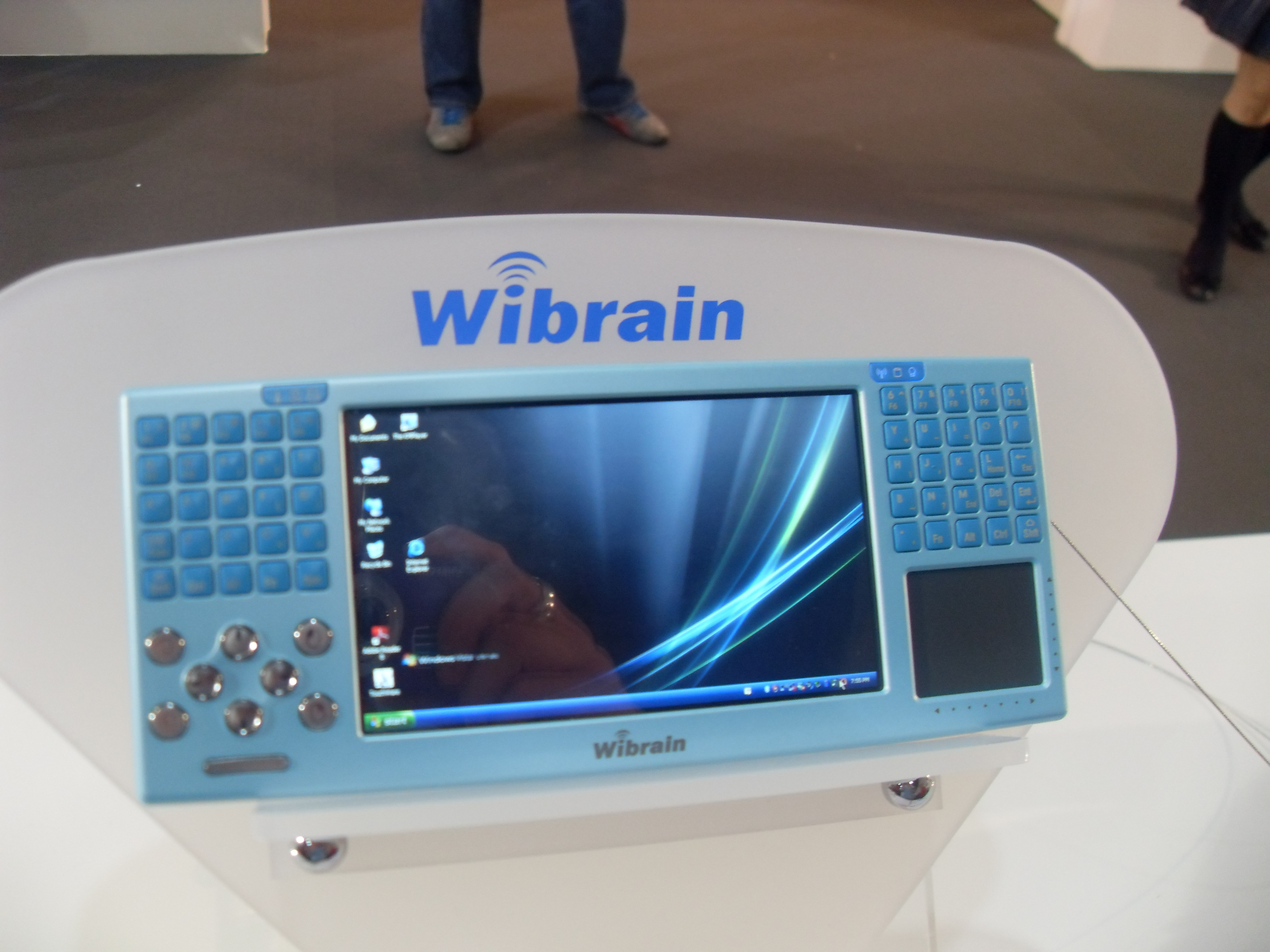Hands on: Wibrain i1 series
IFA 2008: UMPC looks like a lego brick / ghetto blaster combo

We at TechRadar have always been spurious about ultra mobile PCs (UMPCs). What market are they for? Why are they rubbish? Why are they so expensive?
Often the answer to these questions lies in Asia, and in the case of the Wibrain (stupid name aside) i1 series, those answers come flowing towards us like hot glue in a craft shop.
This device might look a little...well, chunky is massively understating things, but it feels weirdly natural in the hand.
The demo model we played with could only handle either a stupidly stretched display or a teeny-tiny 1024x600 res output, but the screen looked hi-res enough and showed off the full Windows XP interface nicely.
CHEAPER than chips
It would be better to think of this as a bastardised netbook, given the £250 minimum price tag (you heard correctly). A UMPC for less than the cost of re-mortgaging your house. Ye gads!
Intel has supplied an Atom processor for the unit, which has 1GB of DDR2 RAM, and can run solid state memory up to 32GB.
Get daily insight, inspiration and deals in your inbox
Sign up for breaking news, reviews, opinion, top tech deals, and more.
Or the more conventional and boring among you can spec out a 30 / 60GB hard drive, but that's just no fun.
The layout felt intuitive, though getting used to the QWERTY keyboard split for the screen wasn't the easiest thing to do.
The internet (over HSPDA or WiFi) was super-zippy, and used full IE7 (though Firefox or whatever you fancied could be installed easily).
Flip off
A flip up antenna and a separate flip camera made this device look, well, stupid, but for the price, you can hardly get angry about that.
Media (streamed video in this case, though the i1 has support for SD cards too. Woo) played like a dream, and looked ultra-crisp on the display too.
Basically, this should be the building block for all UMPCs. There is a niche between the BlackBerry and the laptop that some need filled, and netbooks don't quite cut it.
For £250, you might want to have a look at this if you're one of those people.

Gareth has been part of the consumer technology world in a career spanning three decades. He started life as a staff writer on the fledgling TechRadar, and has grew with the site (primarily as phones, tablets and wearables editor) until becoming Global Editor in Chief in 2018. Gareth has written over 4,000 articles for TechRadar, has contributed expert insight to a number of other publications, chaired panels on zeitgeist technologies, presented at the Gadget Show Live as well as representing the brand on TV and radio for multiple channels including Sky, BBC, ITV and Al-Jazeera. Passionate about fitness, he can bore anyone rigid about stress management, sleep tracking, heart rate variance as well as bemoaning something about the latest iPhone, Galaxy or OLED TV.